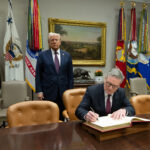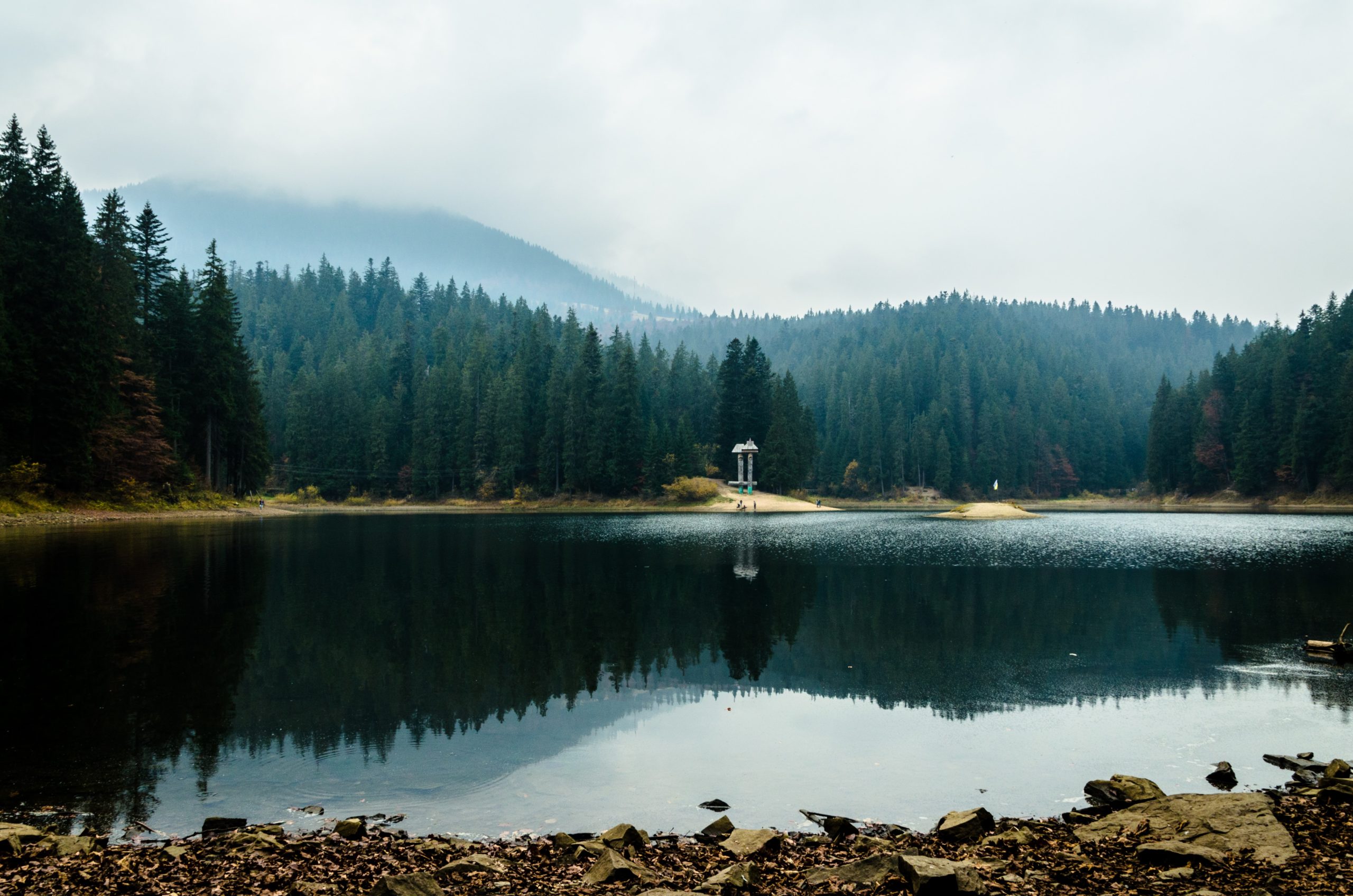The costs of inaction regarding Russia’s renewed aggression against Ukraine are grave. Pro-democracy Baltic states — Estonia, Latvia, and Lithuania — could potentially be at risk of falling under Russia’s influence. Leading and reinvigorating talks, along with economic sanctions and new military aid, should be exhausted before resorting to boots on the ground. The US should take the upper hand in negotiations by working with Germany to terminate the Nord Stream 2 pipeline, which runs under the Baltic Sea to Germany. The US should also increase economic sanctions and freeze President Vladimir Putin and his cronies’ money in the West.
Russia has already crossed red lines and never suffered the consequences. We can no longer take a wait-and-see approach to this crisis. Demanding that Russia retreat from Donbas and other positions around Ukraine’s border contingent upon removing these new sanctions is the best option going forward.
EUROPE’S ENERGY WOES
Nord Stream 2 will allow Russia to bypass Ukrainian pipelines if it wants, and gain greater political leverage over Ukraine and other European gas customers. For that reason — and because Putin is consumed with the deal — both the US and Ukraine oppose the project as a security risk. The Biden administration should work with our European allies to terminate it. Putin has been pushing for European regulators to give swift approval to operate Nord Stream 2. According to the Wilson Center, “the pipeline would allow Russia to gain additional leverage over the Europeans; a naval presence in the Baltic Sea, a move that would unsettle the Baltic States; and, an energy monopoly over the European continent.”
The administration should make the argument to our European allies that the Nord Stream 2 pipeline will not bring in new gas to Europe and will not increase Europe’s gas consumption. According to reports, repairing the current Ukrainian–Polish pipeline would cost around €6 billion, while the construction of Nord Stream 2 would cost €10 billion. Experts believe that Nord Stream 2 is diverting gas from the preexisting Ukrainian–Polish pipeline. In other words, Europeans will receive the same amount of gas, just from a different source. Moscow is engaging in this expensive undertaking to circumvent Ukraine and deny gas transit revenues to Kyiv. Nord Stream 2 should remain a target of US sanctions given the Kremlin’s misbehavior in the conflict in Donbas and cyber and disinformation campaigns. Should Nord Stream 2 become operational, Ukraine will lose a critical deterrent against escalated Russian aggression.
Should Nord Stream 2 become operational, Ukraine will lose a critical deterrent against escalated Russian aggression.
European nations also should decrease their dependence on Russian gas and build a more sustainable energy sector. Lower consumption and a switch to buying supplies from Europe have evaporated Ukraine’s reliance on Russian gas. That limits the leverage the Kremlin might have hoped to gain over its neighbor. As reported by Bloomberg, “a nation that in 2008 consumed 66 billion cubic meters (bcm) of gas — more than France, with an economy that’s much bigger — used 31 bcm in 2020. The share it buys directly from Russia has fallen to zero from 80%.” Investing further in “gas storage and other infrastructure, accelerating the adoption of renewable energy, and expanding the use of nuclear power” will prevent Putin from using energy as a weapon to divide the West. European governments could follow Ukraine’s example, as well as accelerate the adoption of cleaner energy by boosting zero-emissions hydrogen. This would help wean countries and industries off of natural gas, and decrease Russian influence.
Germany is also essential to any effort to deter Putin. President Joe Biden should meet with Chancellor Olaf Scholz to encourage Germany to support sanctions on Russian entities, terminate the Nord Stream 2 pipeline, and cut Russia out of the global electronic payment-messaging system, called the Society for Worldwide Interbank Financial Telecommunications (SWIFT), which is used by 11,000 banks in 200 countries to make cross-border payments.
WHAT REALLY SCARES PUTIN
Putin is threatened by Ukrainian democracy. We cannot suppress the free will of the government of Ukraine, but we must be cognizant of the fact that Putin is looking for a pretext for military action. The US, EU, and NATO should avoid supplying Putin with a rationale to invade Ukraine in response to new military aid. The focus of the administration’s countermeasures should not be direct use of US military force. There should be a combination of support for the Ukrainian military, strong economic countermeasures, and a substantial increase in support and capability to NATO allies, ensuring a strong allied unity and transatlantic solidarity.
Biden made a noteworthy move in a two-hour video call on Dec. 7, 2021 with Putin. Biden laid out the economic and security costs Russia would face if the Kremlin chooses to escalate an invasion of Ukraine. The US should not bend to Russia’s red lines, which include NATO expanding eastward to include Ukraine, conducting exercises in the Baltic Sea region, and deploying offensive weapons systems in countries bordering Russia.
Biden should benefit from congressional support. In a Feb. 17, 2021 letter, a bipartisan group of congressional representatives expressed their readiness to work with the executive branch “to counter Russian malign influence, including by ensuring Nord Stream 2 is never completed.” Congress should start work on a resolution in support of economic sanctions to bolster Biden’s warning to Putin — and Republicans who are serious about getting tough on Russia, should get behind such a measure. The Biden administration and Congress should also provide security assistance to Ukraine, a substantial increase in support and capability to NATO allies, and tough economic sanctions. There is still time for new diplomatic channels to be established, in order to provide an off-ramp to conflict.
Ashley Burrell is a Policy and Program Analyst. She previously served within the Bureau of Counterterrorism and Countering Violent Extremism (CT/CVE) at the US Department of State. She is a Founding Board Member of Women of Color Advancing Peace, Security, and Conflict Transformation (WCAPS).




















